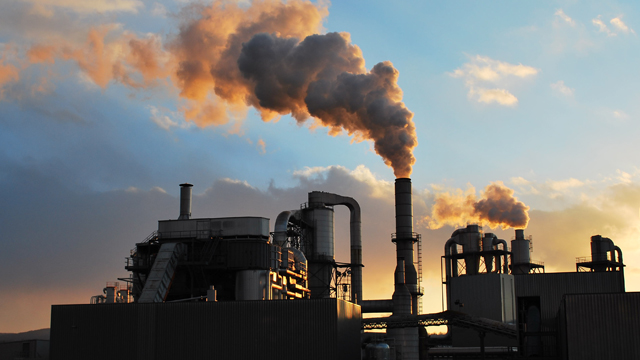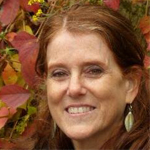This post first appeared at The Huffington Post.

(Photo: Xenja Santarelli/flickr CC 2.0/edited from original)
Since the days of Watergate, the question “What did he know, and when did he know it?” has been a key litmus test for assessing guilt and innocence. Forty years later that question is now being asked in relation to climate change.
Where I live, in the Netherlands, a landmark case will be heard in the Den Haag District Court on Tuesday. The Urgenda Foundation is suing the Dutch government for knowingly endangering its citizens by failing to prevent dangerous climate change.
It comes at a time when an increasing number of legal experts around the world have come to believe that the lack of action represents a gross violation of the rights of those who will suffer the consequences. They also argue that the failure of governments to negotiate international agreements does not absolve them of their legal obligation to do their share in preventing dangerous climate change. These arguments are at the core of the Dutch lawsuit and will undoubtedly be put to the test in other countries before too long.
To adapt the first question: What did governments know and when did they know it?
It’s arguable that government leaders were made fully aware of the dangers of climate change when Walter Cronkite warned the public in 1980 that “a coal-burning society may be making things hot for itself.” He was introducing a news segment covering the greenhouse effect, including a Senate hearing in which Massachusetts Sen. Paul Tsongas quipped:
If it happens, it means goodbye, Miami; goodbye, Corpus Christi; goodbye, Sacramento; goodbye, Boston (which obviously is much more of a concern); goodbye, New Orleans; goodbye, Charleston, Savannah and Norfolk. On the positive side, it means we could enjoy boating at the foot of the Capitol and fishing on the South Lawn.
Eight years later Margaret Thatcher said much the same:
Recently three changes in atmospheric chemistry have become familiar subjects of concern. The first is the increase in the greenhouse gases — carbon dioxide, methane, and chlorofluorocarbons — which has led some to fear that we are creating a global heat trap which could lead to climatic instability. We are told that a warming effect of 1 degree C per decade would greatly exceed the capacity of our natural habitat to cope. Such warming could cause accelerated melting of glacial ice and a consequent increase in the sea level of several feet over the next century…. It is noteworthy that the five warmest years in a century of records have all been in the 1980s — though we may not have seen much evidence in Britain!
But governments passed the deniability point of no return in 1990, when they formally adopted the first report by the Intergovernmental Panel on Climate Change (IPCC), and further in 2009, when they committed themselves to keeping temperature rise below 2 degrees C. Six years later we remain on a collision course with catastrophic climate change.
In 2011 Dutch attorney Roger Cox wrote the book Revolution Justified, laying out the legal case for using existing tort law and human rights laws to force governments into action. The Urgenda Foundation rose to the challenge and began legal proceedings against the Dutch government the following year. Approximately 900 citizens have signed on to the case, a large number of whom are young people whose very survival may ultimately be at stake.
The Dutch case became even more significant last week as a result of the launch of the so-called Oslo principles by some of the world’s leading jurists, including legal scholars and High Court judges. As lawyers Julia Powles and Tessa Khan explain on The Guardian.com:
What the Oslo principles offer is a solution to our infuriating impasse in which governments — especially those from developed nations, responsible for 70 percent of the world’s emissions between 1890 and 2007 — are in effect saying: “We all agree that something needs to be done, but we cannot agree on who has to do what and how much. In the absence of any such agreement, we have no obligation to do anything.” The Oslo principles bring a battery of legal arguments to dispute and disarm that second claim. In essence, the working group asserts that governments are violating their legal duties if they each act in a way that, collectively, is known to lead to grave harms.
Even before the case has been heard, the lawsuit is making waves. It has been extensively covered in the Dutch media and has been discussed in Parliament, with several opposition parties speaking in favor. And when and if Urgenda wins, the political question will change from whether the necessary emissions reductions will be achieved to how.
One of the leading Dutch dailies asked Jaap Spier, Advocate General at the Supreme Court of the Netherlands (and one of the initiators of the Oslo principles), whether a judge needs to be an activist in order to make a statement on climate change. “No,” he said, “it’s just a matter of applying existing law, although undoubtedly not all judges will be open to this. Judges with the courage to rule on this will one day be applauded, whereas those who don’t will eventually be tarred and feathered.”
The Oslo principles demonstrate that this case is relevant not only to the Netherlands and can (and should!) be taken up by citizens all over the world. Last December a group of 11 Belgians, including a few TV personalities and artists, were the first to follow the Dutch example by launching a similar case against their government. Within weeks more than 12,000 people signed on as co-plaintiffs. Armed with the Oslo principles, there is no reason that others shouldn’t follow.
That way, when our children ask what we knew and when we knew it, we can also tell them what we did about it.
The views expressed in this post are the author’s alone, and presented here to offer a variety of perspectives to our readers.


